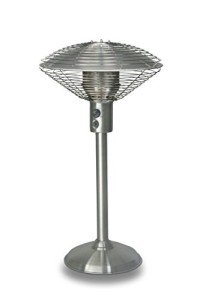What Is Everyone Talking About Gas Heaters Right Now
Understanding Gas Heaters: A Comprehensive Guide
Gas heaters are a vital element of numerous households, offering warmth and convenience throughout the colder months. With www.fireplacesandstoves.uk of gas heaters available, comprehending their functioning, benefits, and precaution is important for users. This post provides an informative introduction of gas heaters, how they work, and addresses frequently asked concerns on the topic.
Comprehending Gas Heaters
Gas heaters operate by burning gas or propane to produce heat. They are utilized to warm indoor spaces and are typically considered more efficient than electrical heaters. The primary kinds of gas heaters include:
Types of Gas Heaters
Type
Description
Natural Gas
Connected to a gas line and supplies continuous heat supply.
Propane
Uses propane tanks, making it ideal for areas without gas lines.
Unvented
Burns gas without a vent system, appropriate for well-ventilated spaces.
Vented
Expels combustion gases outside, perfect for maintaining indoor air quality.
Each type has its unique advantages and applications, making them appropriate for different environments and choices.
How Gas Heaters Work
Gas heaters usually make use of a mix of burners, heat exchangers, and blowers to distribute heat successfully. The process normally involves:
- Ignition: Natural gas or propane is fired up either through a pilot burner or an electronic ignition system.
- Combustion: The gas burns, producing heat which is then moved to a heat exchanger.
- Heat Distribution: A blower or fan disperses the heated air throughout the space, creating a comfortable environment.
- Exhaust: In vented systems, exhaust gases are expelled outside, maintaining security and avoiding toxic buildup inside.
Advantages of Gas Heaters
Gas heaters offer various benefits that make them a popular choice for heating spaces. Some of the crucial advantages include:
- Energy Efficiency: Gas heaters generally offer more heat per system of fuel compared to electric heaters, making them a cost-effective heating choice.
- Rapid Heating: They warm up spaces quickly, offering immediate warmth when switched on.
- Eco-friendly: Natural gas is cleaner than coal and is thought about a more eco-friendly option than electrical heating in numerous regions.
- Reliability: Gas heaters can continue to run throughout power blackouts, ensuring ongoing convenience during severe weather.
Drawbacks of Gas Heaters
While gas heaters have many benefits, there are also some disadvantages to consider:
- Installation Cost: The preliminary setup expense for gas lines or propane tanks can be high.
- Security Risks: There are intrinsic threats connected with gas leaks and carbon monoxide poisoning, demanding careful setup and upkeep.
- Space Requirements: Some kinds of gas heaters (specifically vented ones) require considerable space for setup and exhaust systems.
Maintenance Tips for Gas Heaters
Appropriate maintenance is essential for ensuring the safety and effectiveness of gas heaters. The following ideas can help maintain optimum efficiency:
- Annual Inspections: Have a certified specialist check the gas heater every year to look for leakages and make sure appropriate functionality.
- Clean the Heater: Regularly tidy the heater and surrounding area to avoid dust accumulation, which can affect performance.
- Examine Vents: Ensure that all vents are unobstructed and functioning properly to prevent accumulation of harmful gases.
- Monitor for Smells: Any uncommon smell, especially gas, should be attended to immediately by getting in touch with an expert.
Frequently Asked Questions about Gas Heaters
Q1: Are gas heaters safe to utilize indoors?
Yes, gas heaters can be safe for indoor use as long as they are correctly set up and kept. Vented gas heaters are particularly safe because they expel combustion gases outside, decreasing the threat of carbon monoxide poisoning.
Q2: How can I inform if my gas heater has a gas leak?
Indications of a gas leakage include a foul odor looking like rotten eggs, hissing sounds, and dead vegetation around the location. If you believe a gas leak, it is vital to evacuate the properties immediately and call your gas supplier.
Q3: Do gas heaters require a power source?
A lot of gas heaters do not need electrical energy to operate, especially those that rely on gas. However, models with fans or electronic ignition systems will require a power supply.
Q4: What should I do if I smell gas near my heater?
If you smell gas, you should right away leave the location, prevent utilizing any electrical gadgets, and contact your gas company or emergency situation services from a safe distance.
Q5: What is the lifespan of a gas heater?
Usually, gas heaters have a life-span of 10 to 15 years with appropriate maintenance. Routine assessments can help extend their operational life.
Gas heaters can be an efficient and reputable method to keep homes warm and comfortable during winter months. Their numerous designs and advantages cater to different needs and preferences. Nevertheless, understanding their performance, prospective security issues, and upkeep requirements is important for any house owner thinking about or currently utilizing gas heating. By following best practices and remaining informed, users can take pleasure in the heat and efficiency of gas heaters for many years to come.
